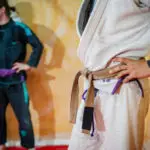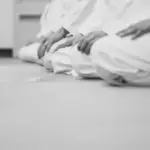Kids BJJ is one of the most helpful activities a parent can introduce to their children. However, a large number of them quit in various stages of learning. It is not just that a child’s enthusiasm wanes. There are other variables as well.
Kids typically will want to quit Jiu-Jitsu because they may feel too much pressure from their parents, burning out from training more than what their body can handle, feeling inferior compared to the other students, poorly structured classes, too much of a time commitment, or it’s simply not for them!
Keep in mind that many kids quit Jiu-Jitsu because the parents lose interest and don’t bring them to class or it becomes too expensive to keep your child in BJJ. Older kids usually quit BJJ because they want to try new things or build up their friendships – they’re still trying to figure out what they enjoy in life!
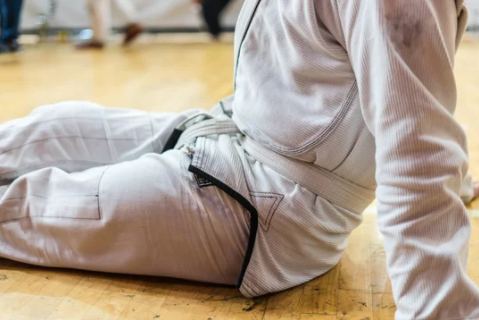
If you are reading this, you probably want to help your child continue their pursuit of the art of Jiu-Jitsu. A child’s interest jumps from one thing to another faster than you can keep up. That is why you need to guide them properly to stick to a particular interest.
To do that, you need to understand what is causing their lack of interest, and then work to eliminate those obstacles. I will be explaining what those things are and how you can deal with them.
Why Do Kids Quit Jiu-Jitsu?
As a parent, you must first accept the idea that not all children will be fond of martial arts. Some of them will love it to the point of obsession, and some of them will stay as far away from it as they possibly can.
Even the kids who show a spark of interest in Jiu-Jitsu might lose every shred of interest in it. There are a lot of reasons for that, and some are more obvious than others.
Pressure From Parents
Parents may put too much pressure on their children to become the best or force them to go to more classes than they want. When parents get emotional about the outcome of their child’s performance it can actually hinder the child’s performance or their desire to train in the first place!
Always give your child positive encouragement so they feel good about what they’re doing. Your child doesn’t want to disappoint you and if you focus on the negatives or show disappointment, they may not want to keep training as they know it could disappoint you.
I’d recommend parents to not watch the class from the sidelines as it’s too tempting to try and coach your child or try to critique them after class.
Realize you are not the coach! Even if you know Jiu-Jitsu, let the instructors coach your child during class.
If your child shows interest to learn outside of class, help them, but don’t force them to train extra!
Burning Out
One of the reasons why a lot of kids quit jiu-jitsu programs is because of over-commitment. A lot of kids these days have too much on their plate, literally and figuratively. They can’t divide their attention between so many things, and it often results in them losing interest in everything.
In a lot of cases, I see that kids are extremely active with multiple sports and other activities. They tend to perform relatively well in all of them, but they can never fully manage to invest themselves in any of them. It results in them slowly detaching themselves from activities such as jiu-jitsu.
Inferiority Complex
Jiu-Jitsu is a great art that is supposed to help a person develop both mentally and physically. Kids BJJ, in particular, aims to help them develop a strong will and mental stability from an early age. So, it sounds funny when I say that kids quit jiu-jitsu programs due to a sense of inferiority.
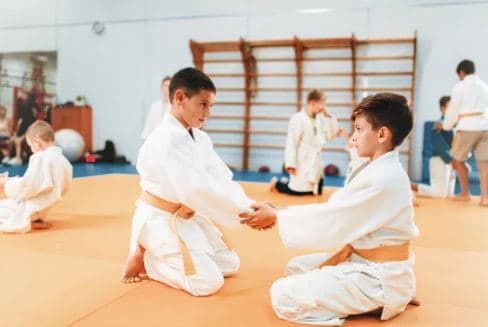
Trust me on this, inferiority is a very real thing. Kids will always compete against each other, and they will inevitably learn that there’s always someone better than them. If they can take them as a role model or set them as a goal, their progress will be limitless.
If they deem that they can never surpass them, and lose hope in themself, they will eventually give up jiu-jitsu. If something like this happens, it’s not the kid’s fault. Half the blame lies with the instructor, and the half lies with the parent.
Faulty Learning Structure
Lack of a proper learning structure can be one of the things behind why your kid wants to quit jiu-jitsu. Jiu-jitsu is a well-structured art, and it will slowly show results. But if the instructors are unskilled, then the results would be minuscule at best.
Even a kid can notice if he is benefiting from something or not. In these situations, if the child has no attachments like friends, they won’t bother to stay and learn. It’s more than just a lack of interest.
Time Commitment
Time is one of the main reasons why kids quit Jiu-jitsu. Time management is a crucial thing, no matter how old someone is.
If you aren’t helping your kids properly manage their time, they will naturally give up things. Jiu-jitsu is often the first thing that they would drop because it is physically draining.
It’s Not For Them
This last reason for your kid wanting to quit jiu-jitsu. Some people do not have any sort of interest in these things whatsoever. This trait develops very early in life, and almost always stays with them throughout their whole life.
If you don’t see any unusual reasons behind your kid wanting to quit a jiu-jitsu program, then it probably isn’t for them. Accept that they aren’t going to be interested in it, so your best choice is to let the matter drop. It doesn’t matter how good you think it is; if your kids aren’t interested, you are better off not forcing them.
How To Prevent Your Kids From Quitting Jiu-jitsu
Now that you know some of the reasons why kids tend to quit jiu-jitsu, you should find it easier to prevent them. Let’s start with the basics first, if you want to get a kid to do anything, then the first thing you need to focus on is communication.
Communicate with your child and try to understand what they are feeling. After that, try to pinpoint their reason behind wanting to quit jiu-jitsu.
Help Them Recuperate
If they are suffering from burnout, then give them time to recuperate. Make space in their daily routine to allow more time to relax and play. Kids need some personal space as much as we do. So, allow your child to take a little break from all the training.
If they are not overburdened with too many things, they will certainly reconsider. It is a gentle process; you can’t forcefully make them do anything.
Be Encouraging
Do not discourage them once they make mistakes. I know it’s important to point out the flaws in their techniques. But if you constantly berate them about their mistakes then it can have negative effects on their mentality. This point is more for instructors and less for parents, but it works for both.
Encouraging them regardless of their mistakes will have a far better result. Kids love to be praised. Even if your kid isn’t doing too well, try to be supportive and encourage them. Acting like an emotionless rock does not help at all, try saying some words of encouragement and reward them in some way after each session.
Do Not Force Them To Be Over-Competitive
A lot of parents have an unhealthy amount of competitiveness when it comes to their kid’s accomplishments. Sometimes it can force a child to break through their limits and reach a place they normally cannot, but it comes at the cost of their spirit.
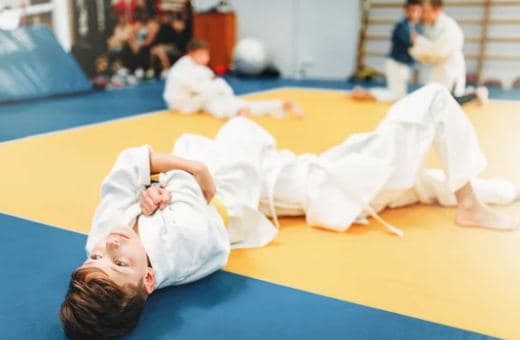
More often than not, children cannot handle this kind of pressure and they try to get away from it with everything they have.
The reason why your kid wants to quit jiu-jitsu might be because of this sort of competitive environment. If that is the case, stop forcing them to compete and just let them train at a lazy pace. It is better than having them quit.
Conclusion
A Child’s interest is a fickle thing that is both unpredictable and uncontrollable. It’s your job as a parent to act as both a guide and a source of encouragement. If your kid has shown interest in Kids BJJ, then try your best to nurture their interest in it. But if it is not their thing, then don’t force the issue.
It should be fairly easy to pinpoint the reason behind your kid’s sudden will to quit jiu-jitsu. As long as you can figure out the root of the problem, removing it should not be too hard either.
Just remember that human nature can change, and a kid can lose every shred of interest in a thing. If that happens, it is better to let the matter drop entirely.
